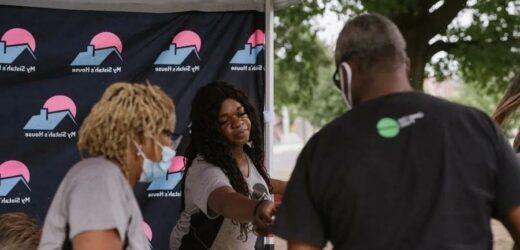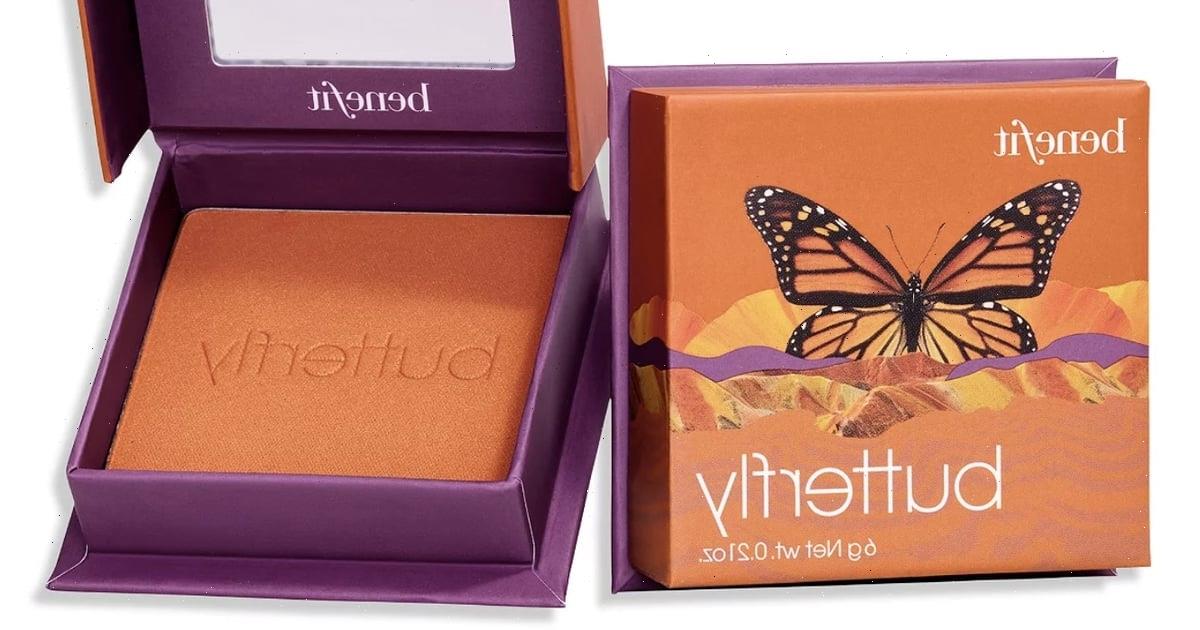As with several things throughout the history of the African American community, My Sistah’s House in Memphis, Tennessee, was created out of necessity. Founded in 2016 by Kayla Gore, it’s Executive Director, and Illyahnna Wattshall, this nonprofit organization provides emergency housing and resources to transgender people in need.
Gore, who identifies as a Black transgender woman, drew from her experiences, as well as those of some of her peers, and recognized the problem of trans people of color suffering from homelessness. It was during this time that the idea for their Tiny Homes project was conceived.
“When I started My Sistah’s House with Illyahnna, I was working at the LGBTQ+ Community Center, and we had a lot of transgender adults coming in needing access to emergency shelters – but there were no shelters that would accept them here in Memphis.” Gore told ESSENCE. “At the time there were only 71 beds available in emergency shelters across the metro area—and none of them were designated for trans people. So, we started accepting them in our house and in our apartment. It started from word of mouth, from a grassroots level.”
In 2018, the National LGTBQ+ Task Force reported that 41 percent of Black trans people were without housing at one point in time, which is about five times higher than the rest of the country. So, the Tiny Homes initiative began as a response to the rising epidemic of homelessness that plagues the area but grew to become so much more.
Upon receiving over $250,000 in donations through their GoFundMe campaign to purchase land, My Sistah’s House began construction on their very first home. Gore spoke glowingly of the progress her organization has made in recent years, saying: “Our housing project is going very well, we’re working on number five – with two under major renovation right now. We’ll eventually have about six houses in the same area, while the rest of the houses will be in scattered sites throughout that neighborhood and adjacent communities.”
The Tiny Homes project was also born during a time of uncertainty for this country. The past few years have been tumultuous to say the least. From the events of civil unrest in the aftermath of the several accounts of police brutality inflicted on people of color, along with a global pandemic that ravaged this country since 2020, Gore felt that the time was either now or never for this initiative. Although the construction of MSH’s first tiny home wasn’t easy, it was definitely necessary. “It was really eye-opening because I’ve never considered myself to be a developer,” Gore spoke to the process of building MSH’s first Tiny Home. “Everything that happened with the pandemic and the Black Lives Matter movement; it put us in a moment – either fight or flight. I got to learn about architecture, I got to learn about our Memphis 3.0 plan here, I got to learn a lot about how the city’s planning board works with the community. It was a very new and scary experience, but a welcomed experience.” Outside of housing and shelter, this unique organization also aids with bill funding, legal name changes, driver’s license reinstatement, and survival kits. Many of these services are needed, given the incidents of violence towards trans people, as well as the alarming murder rate that Black transgenders experience. Due to lack of employment opportunities and stable housing, some trans people have had to resort to sex work, which are all reasons why My Sistah’s House has become crucial to the city of Memphis. Many trans people of color also face unnecessary difficulties when in need of medical care. They are highly discriminated against when they are in need of hormone replacement therapy during their transition. The history of negligence and apathy towards African Americans in regard to the health field also increases the risks that trans people – specifically Black trans women – are confronted with on a consistent basis. “For Black folks, there has always been a lack of trust towards the medical industry that goes all the way back to the Tuskegee Experiments – and even before that,” Gore expounded on the reasoning for trans people’s poor access to adequate health care. “There’s been a history of mistrust within our community, then you add on being trans – those are all contributing factors.” Another less talked about obstacle that Black trans women encounter is the crisis of identity. Not just what they identify with, but who other people identify them with, along with their prejudices and stereotypes. In this country, being Black, being a woman, and being transgender, all come with an added burden. So, to identify with all three can become overwhelming for even the strongest-willed person. Also, the dilemma of having to alter who you are in certain places is a daunting task. “I think that all three [designations] show up in different spaces, but many times it depends on where I am. Like: ‘Am I going to be trans in this room? Am I going to be Black in the room? Or am I going to be a woman in this room?’ A lot of times I’m not afforded the opportunity to be all three – unless I create the space myself. Which is another reason why My Sistah’s House was created because people can be all three in those places, as opposed to other situations. It’s about inclusion.” Although the area’s surrounding neighborhoods are still the primary focus for MSH, Gore doesn’t want to stop there. Housing and emergency shelter is something needed by more than just Black trans people in her city. In the future, she hopes to extend this service to groups as well, because equality for some isn’t equality for all. “We’ve been in discussions with different groups and organizations outside of Memphis centered around building tiny homes in their localities, so we do plan on expanding,” Gore explained to ESSENCE. “But as far as locally, there’s been a lot of media surrounding services that we provide, so we get plenty of support from people. But also, people are more aware of what we provide.” “There’s been a greater need for housing not just for the transgender community, but outside of it as well,” she added. “So, we’re definitely looking into expanding the Tiny House project to include people from other groups because housing is a human right.” Source: Read Full Article


